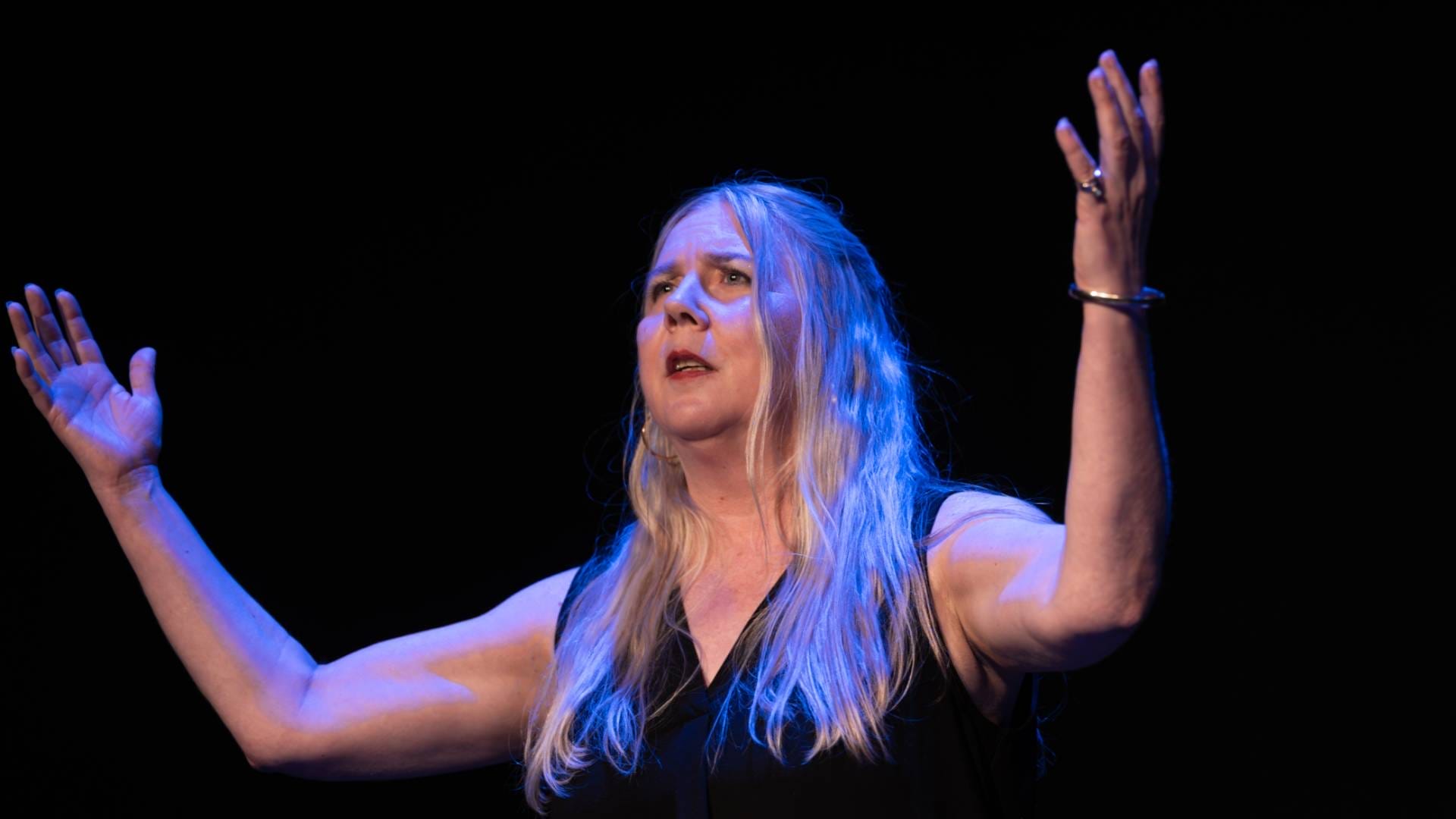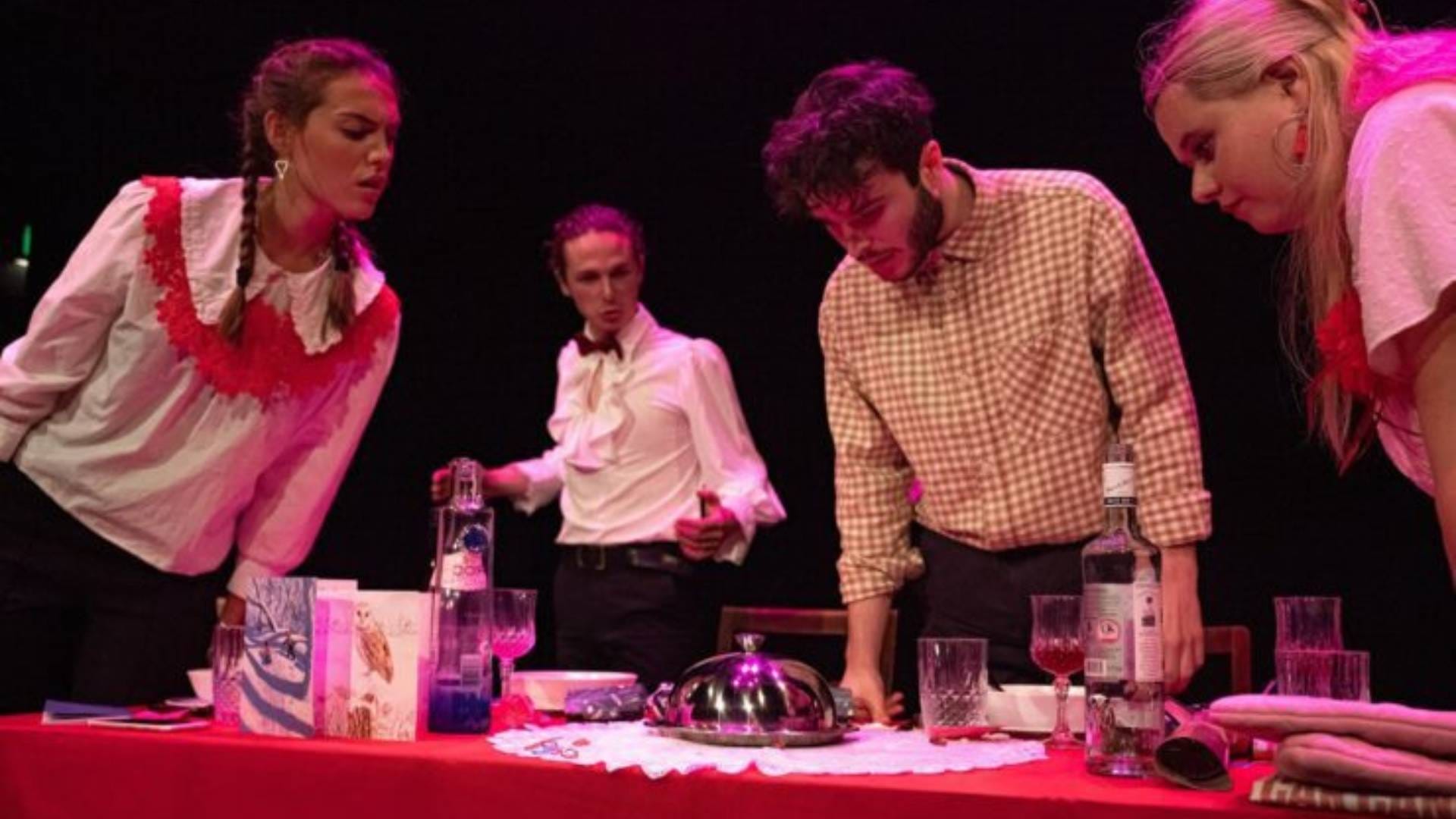 Junk Theatre’s ANTS is a masterful comedy which operates equally in darkness and sentimentality. With these tools in hand, its trio of actors take hold of the audience’s attention and heartstrings and pull them into a chaotic journey. It begins as an investigation into the modern corporate world and ends weighing up the meaning of life. Off the back of the office drama hype created by Succession, ANTS’ spotlight on low-level employees and its relative earnestness in tone is a much-appreciated breath of fresh air.
Junk Theatre’s ANTS is a masterful comedy which operates equally in darkness and sentimentality. With these tools in hand, its trio of actors take hold of the audience’s attention and heartstrings and pull them into a chaotic journey. It begins as an investigation into the modern corporate world and ends weighing up the meaning of life. Off the back of the office drama hype created by Succession, ANTS’ spotlight on low-level employees and its relative earnestness in tone is a much-appreciated breath of fresh air.
It’s a classic formula: put an odd number of characters with conflicting views and interests in a room together for a set amount of time and force them to solve a problem. You’ll skip the small talk and get straight down to pressing each other’s buttons. But ANTS knows exactly what it’s doing, and it doesn’t need some fancy narrative structure to get there. Instead, it deals in tight witty exchanges, rich characters, and actors who thrive when their characters are pushed to their absolute edges.
Theatre comedy is rarely this slick. George Manson’s script gives nothing away for free, but what you do get punches hard. This is advanced by our actors’ excellent comic timing, playing off each other masterfully. Their balancing of emotional vulnerability and aggression, which often flips within a second, is exceptional. Anna Van Miert is iconic as the uptight turned unhinged ONE – a relatable transformation for many audience members, I’m sure.
With carefully blocked scenes from director Tom Mitchell, our performers owned the space, their anxiety ominously swelling into the entire room. This is probably the only play the corporate feeling conference room turned theatre of theSpace on the Mile lends itself well to, evoking the pallid office space in which our characters are stuck and forced to face their deepest fears.
It should also be admired that no prop was a spare part. Plastic theatre at its best, the flipchart often took centre stage as a fourth character with its messages detailing the team’s mental unravelling. Its visual accompaniment to van Miert’s manic presentation, broadcasting phrases such as ‘WE ARE F**KABLE’ and ‘SQUEEZE THE SPONGE’ in increasingly scrawled writing, functioned brilliantly to heighten the scene’s absurdity.
If anything, ANTS’ ending felt too hopeful, and our characters’ candid revelations played on for slightly too long to not feel artificial. Craving cynicism, as each character left the stage, abandoning their task and, with it, the corporate life, and Joel David’s TWO was left until last, I was ready for him to break his wistfulness and snap into presenting his proposed solution to his superiors, having played the other two for his gain. It would have tracked. But Manson instead presents a conclusion of unity. Perhaps Jesse Armstrong would have written that alternative ending, but, although perhaps less comically satisfying, I am grateful to Manson for his commitment to hope.

















